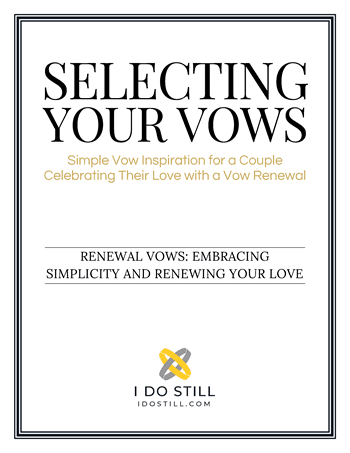Should You Hire a Professional Event Planner? Weighing the Pros and Cons
Should You Hire a Professional Event Planner? Weighing the Pros and Cons
Considering whether to hire a professional event planner? Discover the benefits, potential drawbacks, and tips for making the best decision for your event.

Planning an event, whether it’s a wedding, vow renewal, or another significant occasion, can be both exciting and overwhelming. One of the first decisions you might face is whether to hire a professional event planner. This decision isn’t always straightforward—it depends on factors like your budget, the size and complexity of the event, and how comfortable you are with handling the details yourself. This guide will help you weigh the pros and cons of hiring a professional planner so you can make an informed choice that suits your needs.
What Does a Professional Planner Do?
Comprehensive Planning
A professional event planner’s role goes far beyond simply organizing the event. They handle everything from the big-picture vision to the smallest details. This includes tasks like selecting the perfect venue, managing vendors, and coordinating logistics on the day of the event. Their goal is to bring your vision to life while ensuring everything runs smoothly.
- Venue Selection: Planners can recommend and secure venues that align with your event’s theme, size, and budget.
- Vendor Management: They coordinate with caterers, florists, photographers, and other vendors, managing contracts and ensuring everyone is on the same page.
- Day-Of Coordination: On the day of the event, planners ensure everything goes as planned, handling any issues that arise without disrupting the celebration.
Budget Management
Managing a budget can be one of the most stressful aspects of event planning. A professional planner can help you create a realistic budget and stick to it. They know where to allocate funds for maximum impact and how to avoid unnecessary expenses.
- Cost-Effective Decisions: Planners can guide you in making cost-effective decisions without compromising on quality.
- Tracking Expenses: They keep track of all expenses, ensuring you stay within your budget and avoid last-minute surprises.
Creative Direction
A professional planner doesn’t just handle logistics—they also bring creative vision to your event. Whether you have a clear idea of your event’s theme or need help developing one, planners can offer creative direction that ties everything together.
- Theme Development: They help you choose a theme that reflects your personality and style.
- Design Coordination: Planners work with designers and decorators to ensure that the event’s aesthetic is cohesive and stunning.
Benefits of Hiring a Professional Planner
Expertise and Experience
One of the most significant advantages of hiring a professional planner is their expertise. Planners have years of experience managing events of all sizes, and they know how to handle everything from routine tasks to unexpected challenges.
- Handling Logistics: Planners are skilled at managing the myriad details that go into an event, ensuring nothing is overlooked.
- Problem-Solving: If issues arise, an experienced planner knows how to address them quickly and efficiently, often without you even noticing.
Stress Reduction
Planning an event can be stressful, especially if you’re juggling other responsibilities. Hiring a planner can significantly reduce this stress by taking on the bulk of the planning work.
- Less Worry: With a planner managing the details, you can focus on enjoying the event rather than worrying about logistics.
- Peace of Mind: Knowing that a professional is handling everything gives you peace of mind, allowing you to relax and enjoy the process.
Time-Saving
Planning an event takes time—time that you might not have if you’re balancing work, family, and other commitments. A professional planner can save you countless hours by handling time-consuming tasks on your behalf.
- Efficient Planning: Planners know how to get things done efficiently, often working behind the scenes to ensure everything is ready on time.
- Delegating Tasks: By delegating tasks to a planner, you free up your time to focus on other important aspects of your life.
Vendor Relationships
Professional planners often have established relationships with vendors, which can be a significant advantage. These relationships can lead to better deals, preferred pricing, and smoother coordination.
- Trusted Vendors: Planners can recommend vendors they’ve worked with before, ensuring reliable service.
- Negotiating Power: Their established relationships often mean they can negotiate better rates or secure perks that might not be available to the general public.
Potential Drawbacks
Cost Considerations
One of the most obvious drawbacks of hiring a professional planner is the cost. Depending on the planner and the scope of the event, their services can represent a significant portion of your budget.
- Budget Impact: The cost of a planner can be substantial, and it’s essential to weigh this against the value they bring.
- Evaluating Worth: Consider whether the time, stress, and effort saved are worth the financial investment.
Loss of Control
Some people enjoy being hands-on with event planning and might feel that hiring a planner reduces their control over the event’s details. While planners work closely with you to realize your vision, it’s essential to communicate your preferences clearly.
- Maintaining Involvement: It’s possible to stay involved by working closely with your planner, but you might need to find a balance between delegating tasks and retaining control.
- Trust Issues: For those who struggle with delegation, it can be challenging to trust someone else with such an important event.
Finding the Right Fit
Not every planner will be the right fit for your event. Finding a planner whose style, personality, and approach align with your vision can take time and effort.
- Compatibility: It’s essential to find a planner who understands your vision and can execute it effectively.
- Initial Consultations: Take the time to meet with several planners to find one that you feel comfortable with and who shares your event’s aesthetic.
When You Might Not Need a Professional Planner
Smaller or Simpler Events
If your event is small or relatively simple, you might not need a professional planner. For instance, a small vow renewal or intimate gathering can often be managed without professional help.
- DIY Planning: Smaller events often have fewer moving parts, making it easier to manage planning on your own.
- Cost Savings: Foregoing a planner can save you money that might be better spent on other aspects of the event.
Personal Enjoyment of Planning
Some people genuinely enjoy the process of planning events. If you find satisfaction in organizing details and seeing your vision come to life, you might prefer to handle the planning yourself.
- Creative Satisfaction: Planning your event allows you to express your creativity and personal style.
- Personal Touch: When you plan your event, every detail reflects your unique preferences and personality.
Budget Constraints
If budget constraints make hiring a planner impractical, it’s possible to plan a successful event on your own. There are many resources available—both online and in print—that can guide you through the planning process.
- Resourcefulness: With careful planning and resourcefulness, you can create a beautiful event without the added expense of a planner.
- Prioritizing Budget: Allocate your budget to the elements that matter most to you, whether that’s the venue, food, or entertainment.
Tips for Deciding Whether to Hire a Planner
Assess Your Needs
Start by evaluating the complexity of your event, your personal comfort level with planning, and your available time. If your event is large, complex, or requires coordination of multiple vendors, a planner might be necessary.
- Complexity Assessment: Consider the number of guests, the level of detail involved, and the logistics required.
- Personal Comfort: Be honest with yourself about your comfort level with planning and managing an event.
Consultations
Many planners offer initial consultations, sometimes even free of charge. Use these meetings to gauge whether a planner’s services align with your needs and if their personality is a good fit.
- Ask Questions: During consultations, ask about the planner’s experience, style, and how they handle unexpected challenges.
- Evaluate Fit: Trust your instincts—if you feel a good rapport with the planner, it’s a sign they might be the right choice.
Partial Planning Services
If you’re unsure about full-service planning, consider hiring a planner for specific tasks, such as day-of coordination or vendor management. This approach allows you to handle the aspects you enjoy while delegating the more challenging tasks.
- Day-Of Coordination: A planner can ensure everything runs smoothly on the day of the event, allowing you to relax and enjoy the moment.
- Vendor Management: Planners can take the lead on managing vendor contracts and logistics, which can be particularly challenging.
Final Thoughts
Deciding whether to hire a professional event planner is a personal choice that depends on your event’s complexity, your comfort with planning, and your budget. While professional planners offer expertise, stress reduction, and time-saving benefits, they also come with a cost and may not be necessary for every event. By carefully weighing the pros and cons and considering your specific needs, you can make the best decision for your event.
Whether you choose to hire a planner or go the DIY route, the most important thing is that your event reflects your vision and allows you to enjoy the celebration. If you’re still unsure, consider meeting with a few planners to explore your options and see if their services are the right fit for you.


